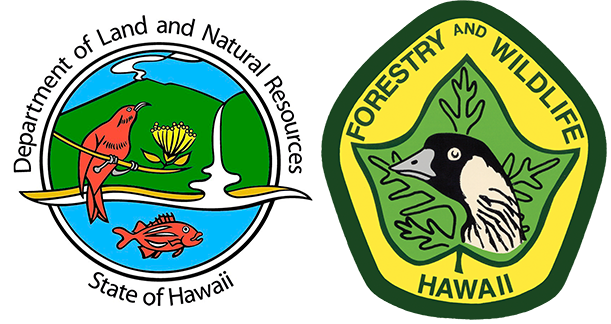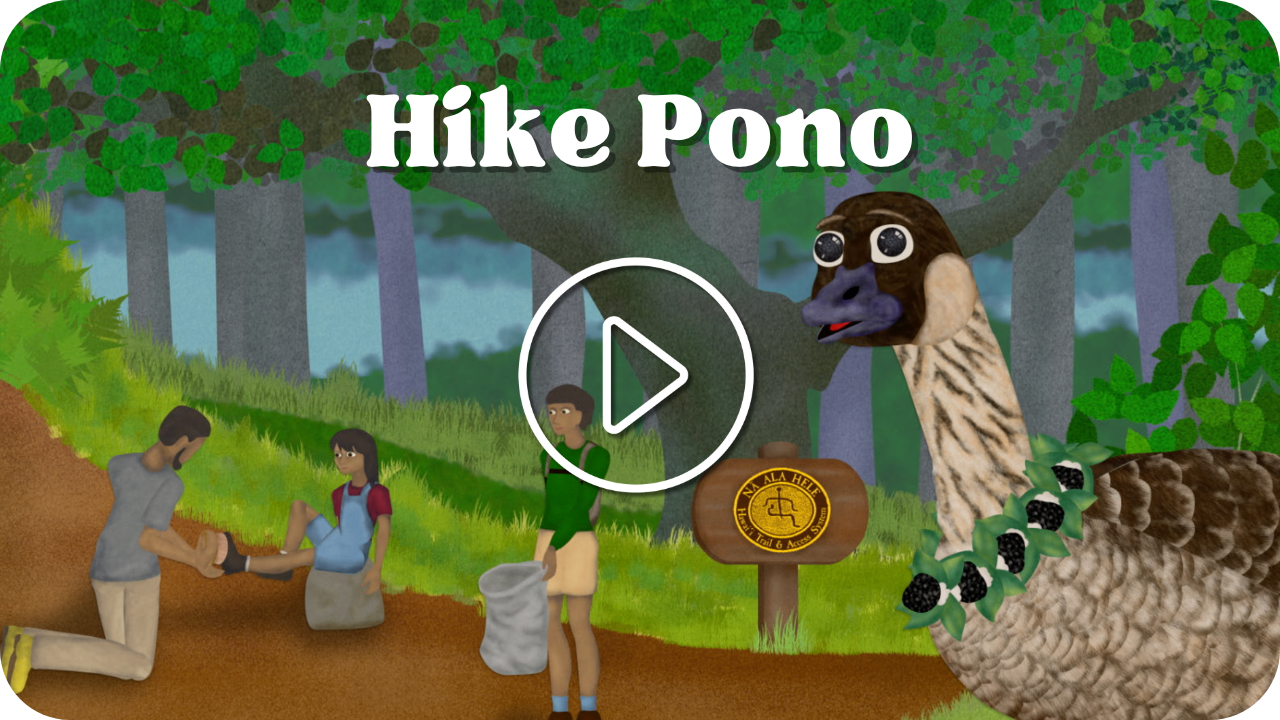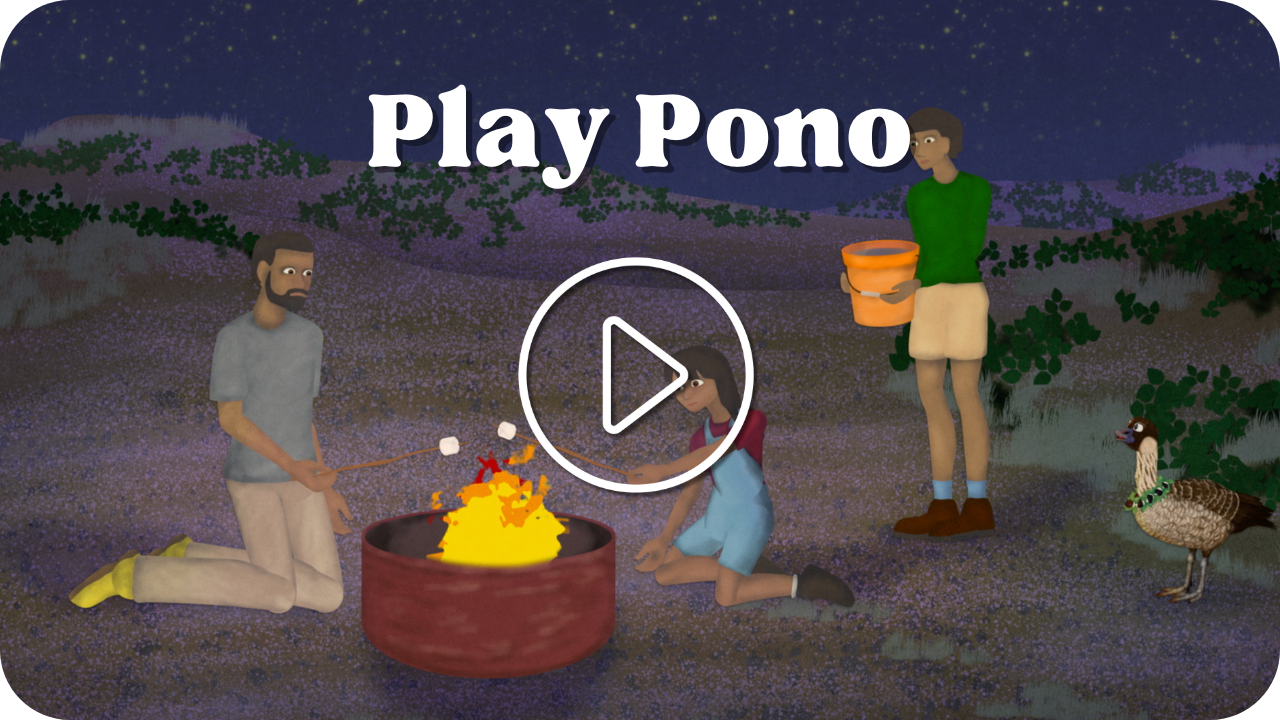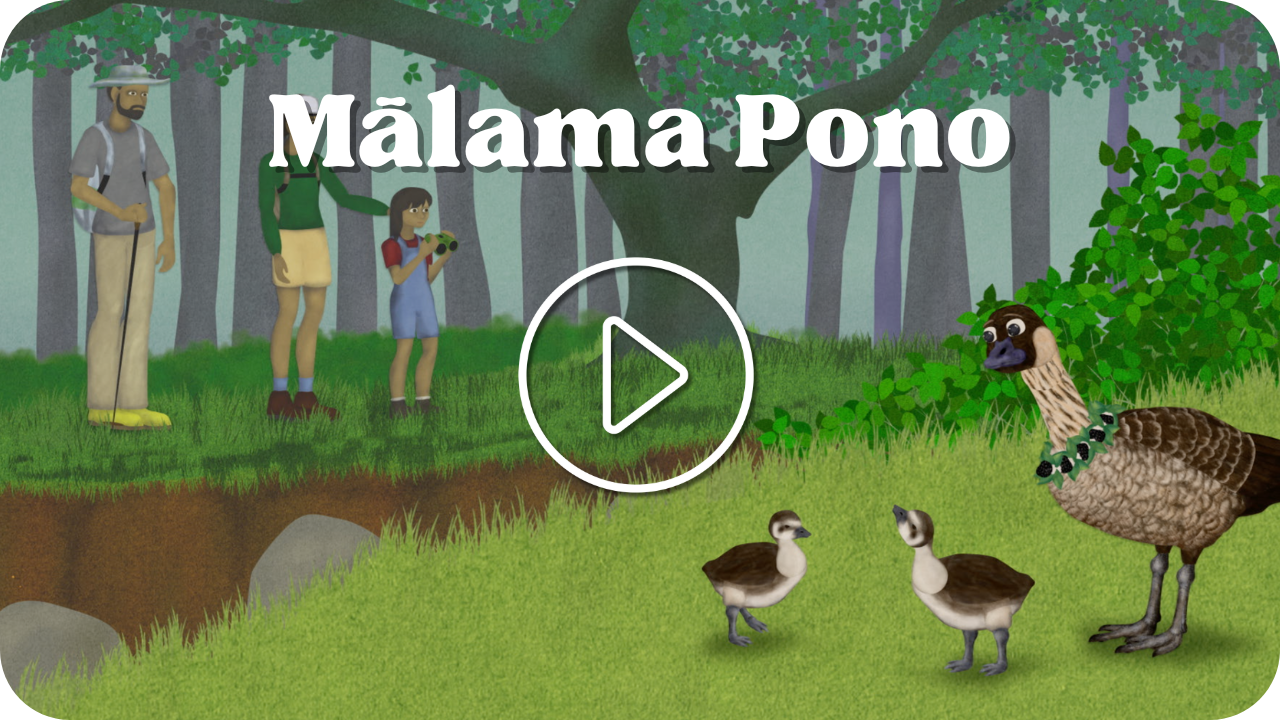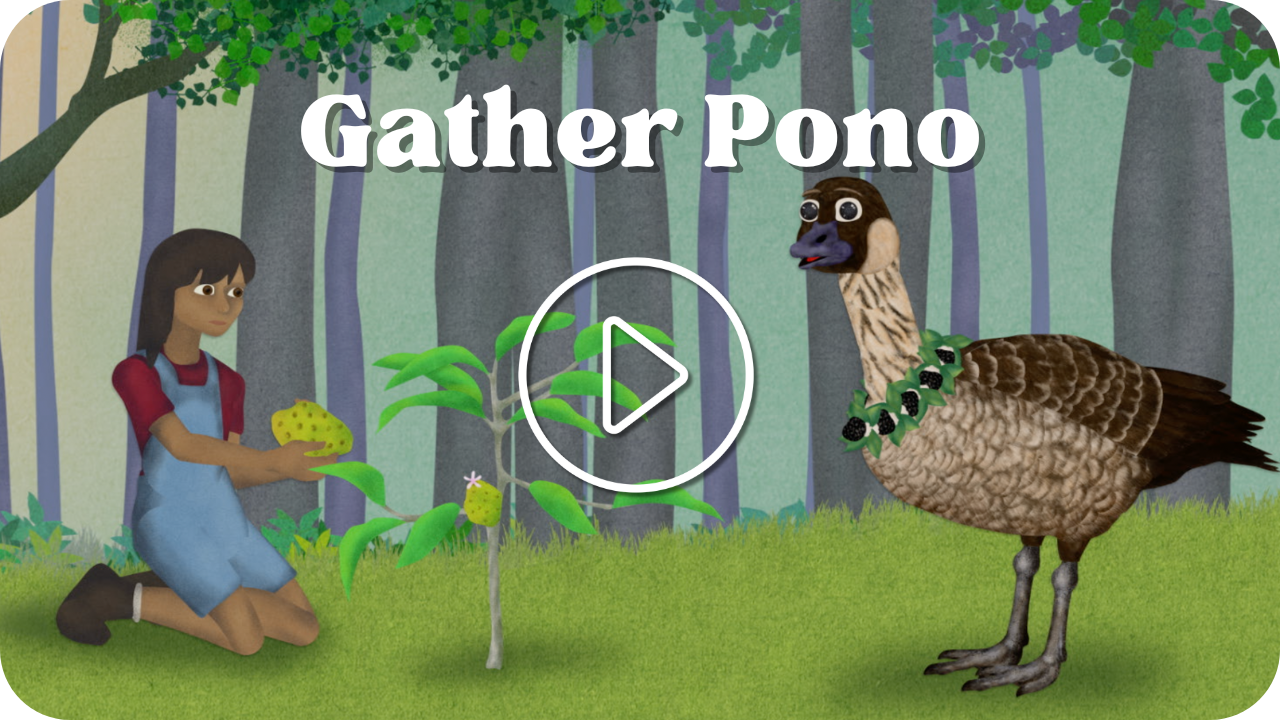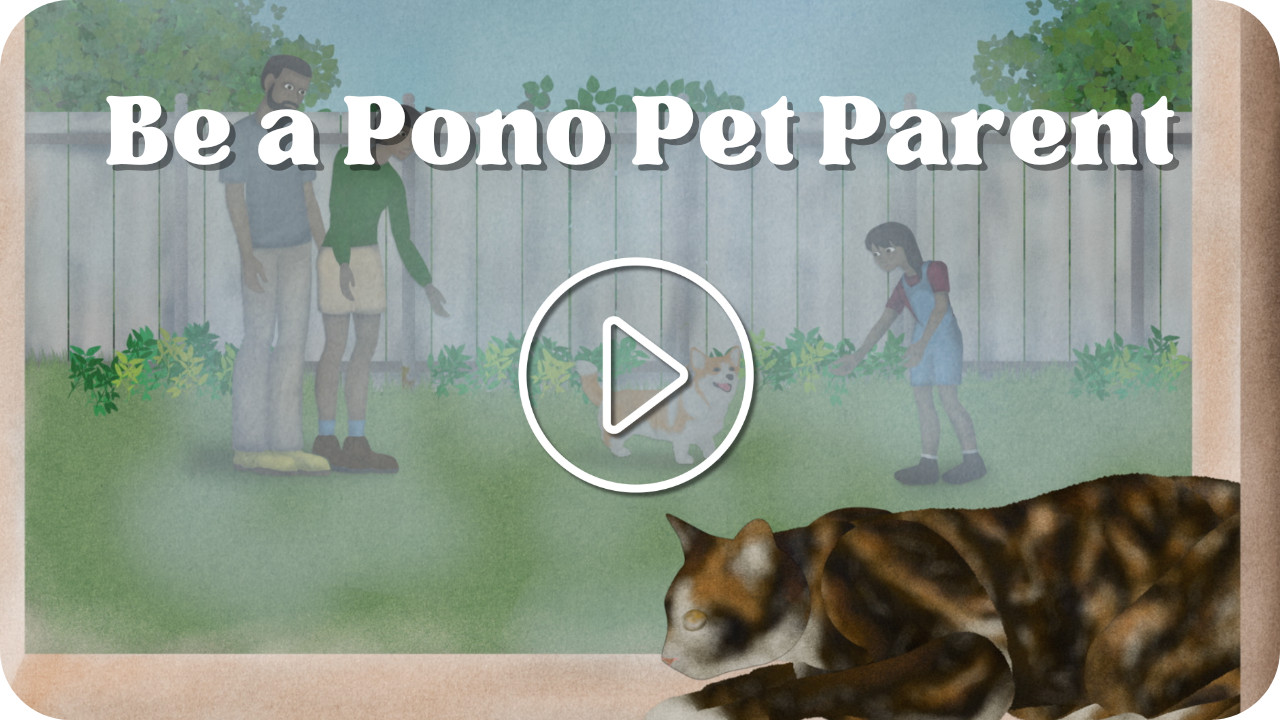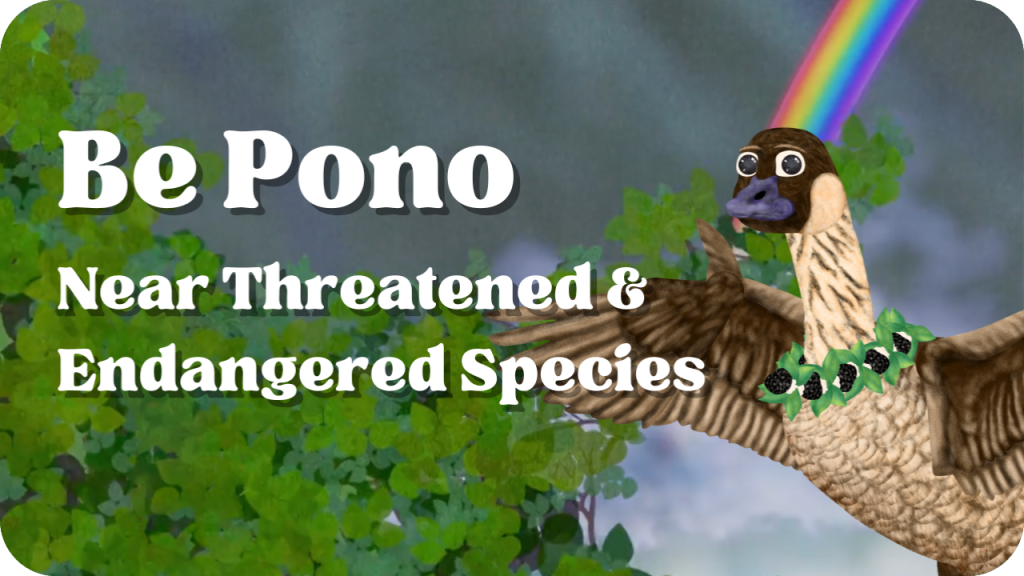Be Pono Outdoors

Headed outdoors? Our mascot Pono the Nēnē is here to help you engage with natural resources in a responsible way. Whether you’re hiking, camping, viewing wildlife, gathering forest materials, or taking a pet outside, Pono has tips on how you can do the right thing. As Pono says: E mālama kākou i ka ʻāina. Let’s care for the land together.
Jump to: Hike Pono | Play Pono | Mālama Pono | Gather Pono | Be a Pono Pet Parent | Be Pono Near Threatened & Endangered Species
After you watch all of our Pono videos, claim a reward at the bottom of this page.
Hike Pono
- Only use official trails found on our website or in the Outerspatial app. Unofficial trails are illegal and may harm native species habitat.
- Clean gear before and after hiking, and use boot brush stations. This helps avoid the spread of invasive seeds or diseases like Rapid ʻŌhiʻa Death.
- Stay on the trail. Shortcuts harm plants & cause erosion.
- Keep pets on leashes at all times. This protects your pet, wildlife, and other hikers.
If you are birding, follow our guidelines for Ethical Birding in Hawaiʻi and check out our Hawaiʻi Birding Trails portal to learn which birds you might see on which trails.
Most trails do not have dedicated parking areas, so remember to be kind to neighbors who live near trailheads. Don’t block their driveways or mailboxes when you park, and don’t use their hoses to wash your muddy boots.
Our forests are cultural spaces, so be respectful. Native Hawaiians consider mauka areas the wao akua (realm of the gods) and some trails may traverse wahi pana (places of special significance). Some trails are ancient and historic trails used by Native Hawaiians and are protected for cultural value and use.
Make sure you hike safely: Know your route before you go and check the description to see if it matches your physical limits. Tell someone your hiking plans and when you expect to return so they can call for help if you don’t return. Take a fully-charged cellphone with you, but be aware you may not have service along the trail. Check the weather before you hike, and take sufficient food, water, sun protection, rain protection, and a first aid kit. Some of our trails go through Public Hunting Areas, so be aware that you may cross paths with hunters and dogs, and consider wearing blaze orange. You can read our Hiking Saftey brochure for more details.
To learn more about Hawaiʻi’s trails and safe hiking, visit our Nā Ala Hele pages.
Play Pono
- Only have campfires at official campsites that allow campfires. Keep camp and cooking fires in enclosed containers.
- Have a water source ready to extinguish the fire, and never leave before the coals are cool to the touch. Let Smokey Bear show you how to soak, stir, soak, stir, and feel the coals.
- Don’t set off fireworks or sparklers, especially near forests or grassy areas. On holidays, go watch a professional fireworks show instead.
- Keiki can help! Watch our video with Smokey Bear, who says not to play with matches, sparklers, or fireworks. If you see a fire, don’t stall! Call 911.
Mālama Pono
- Keep a safe distance from all wildlife. Many of Hawaiʻi’s animals are threatened or endangered, and disturbing them is against the law. Use binoculars, stay on the trail, and don’t get too close when taking photos.
- Keep wildlife wild: never feed wild animals. It’s illegal, and it can make them sick.
- Don’t feed feral cats or leave pet food outside. Food placed outside can inadvertently end up in the bellies of native wildlife.
You can also help by reporting downed seabirds that need the care of wildlife experts. To learn more about Hawaiʻi’s amazing wildlife and how you can help, visit our Wildlife pages.
Gather Pono
- Get permission before you gather. For privately-owned lands that means asking the landowner. For public Forest Reserves, that means getting a Forest Reserve System collection permit.
- We have a separate permit for gathering as a Native Hawaiian customary and traditional practice when in a Forest Reserve. You can learn about the context for this permit under the Forest Reserves section of our Forestry & Wildlife Permits page.
- Take only what you need, and only what the land can provide.
Most personal collection permits are free, depending on the amount being collected. Commercial collection permits are also available. To learn more about Hawaiʻi’s forests and our Forest Reserve System, visit our Forestry pages.
Be a Pono Pet Parent
- Keep your pets inside your house or in an enclosed yard. There are many resources to keep indoor pets happy and safe.
- If you take a pet with you to the beach or into the forest, it needs to be on a leash. Yes, cats can use leashes!
- Clean up after your pet with a baggie, and put the baggie directly into the trash or in your backpack to dispose of later. Don’t leave it on the ground or tied to a tree and think “I’ll come back for this later.”
In addition to caring for pets in your home, never feed feral cats. The concept “Trap Neuter Return” or TNR has been shown time and time again to not work as a tool for reducing the feral cat population over time. On the contrary, maintaining a cat colony may signal to people who want to abandon their pet that they can do so and someone else will care for their abandoned cat. Abandoning cats is illegal and punishable by a fine.
We partner on the Pono Pet Parent campaign with local conservation and animal welfare organizations, including NOAA and the Hawaiʻi Veterinary Medical Association (HVMA). To learn more about being a Pono Pet Parent, visit HVMA and take the Pono Pet Parent Pledge.
Be Pono Near Threatened and Endangered Species
Hawaiʻi has more threatened and endangered species than any other state, by far. It is our responsibility to be careful around at-risk species and minimize any impacts we have on them, so we can keep wildlife wild and ensure that Hawaiʻi’s natural and cultural resources will be here in the future.
You can learn how to Be Pono Near Theatened & Endangered Species, including waterbirds, seabirds, forest birds, ʻōpeʻapeʻa, plants, sea turtles, and monk seals.
Did you watch all of our Pono the Nēnē videos? Time to claim your reward and let others know that you’re with Pono!
We’ll send you a free Pono the Nēnē sticker for your water bottle, or a free bumper sticker letting others know you care for our ʻāina. Just send us an email and let us know which sticker you want. Make sure to include your mailing address.
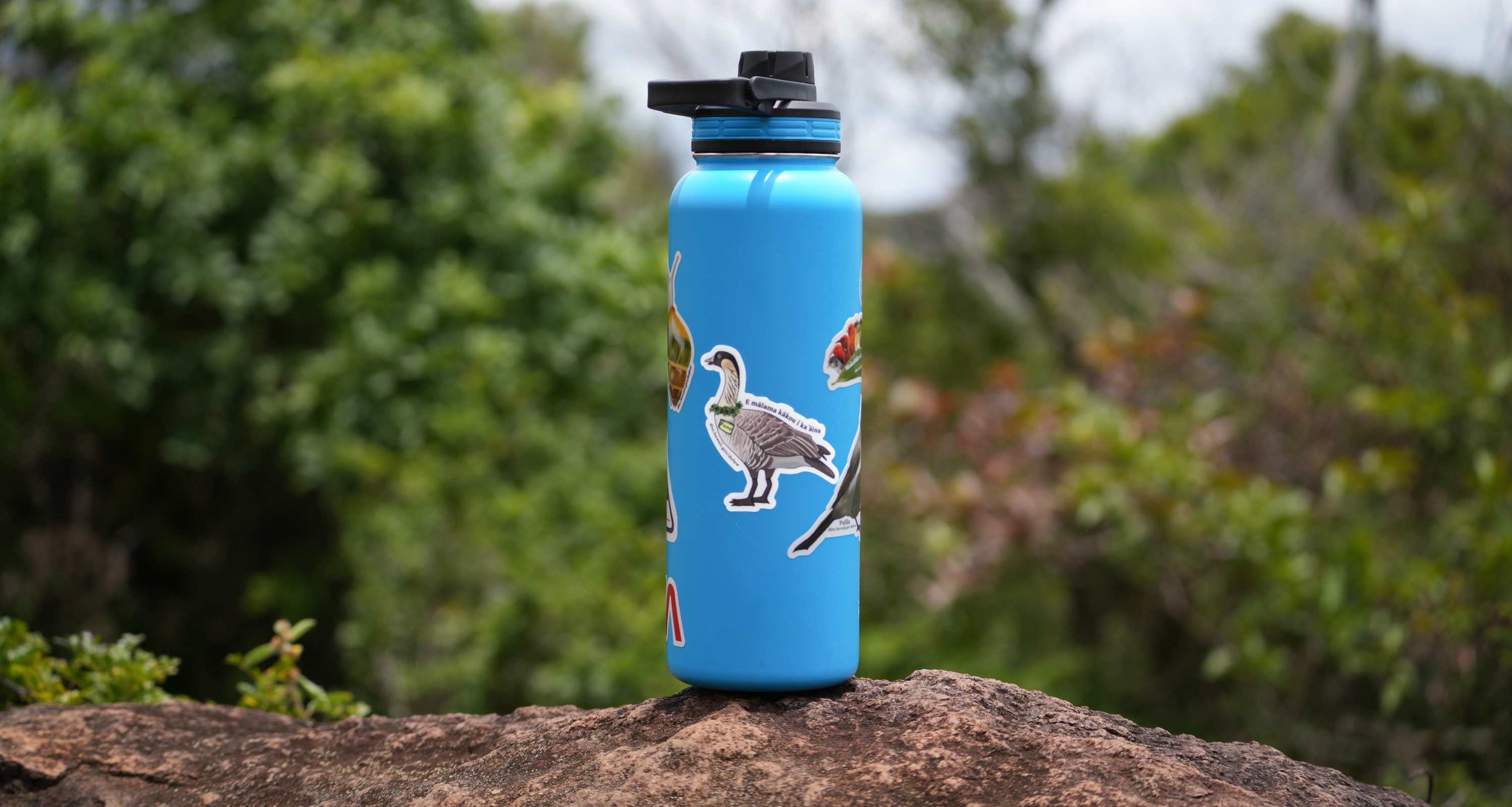 Our Pono the Nēnē water bottle sticker, 3″ vinyl
Our Pono the Nēnē water bottle sticker, 3″ vinyl
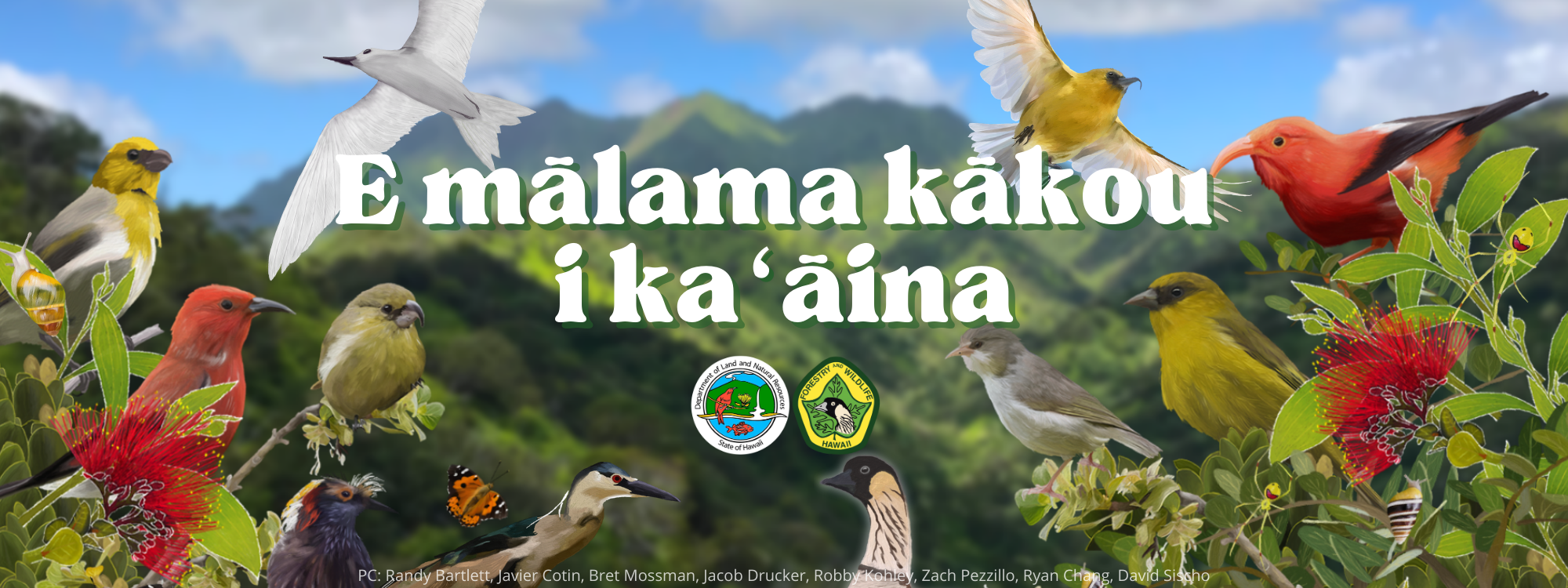 Our “E mālama kākou i ka ʻāina” bumper sticker, 8″x3″, vinyl
Our “E mālama kākou i ka ʻāina” bumper sticker, 8″x3″, vinyl
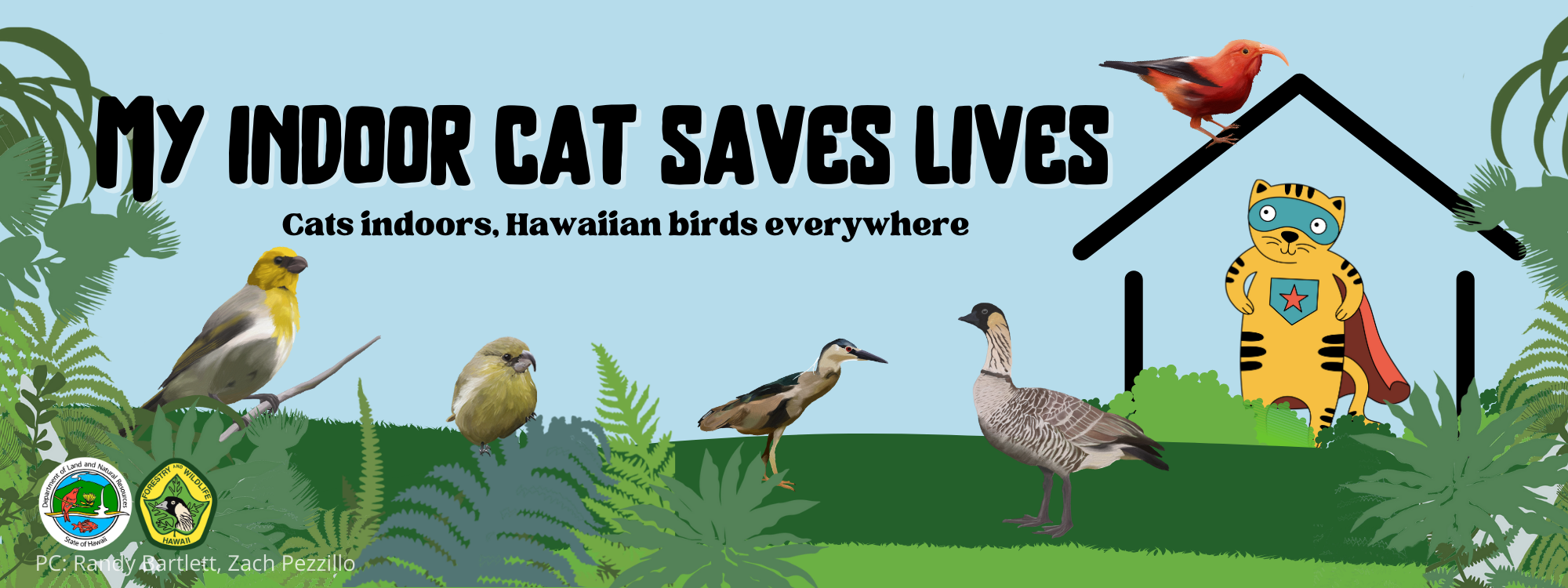 Our “My Indoor Cat Saves Lives” bumper sticker, 8″x3″, vinyl
Our “My Indoor Cat Saves Lives” bumper sticker, 8″x3″, vinyl
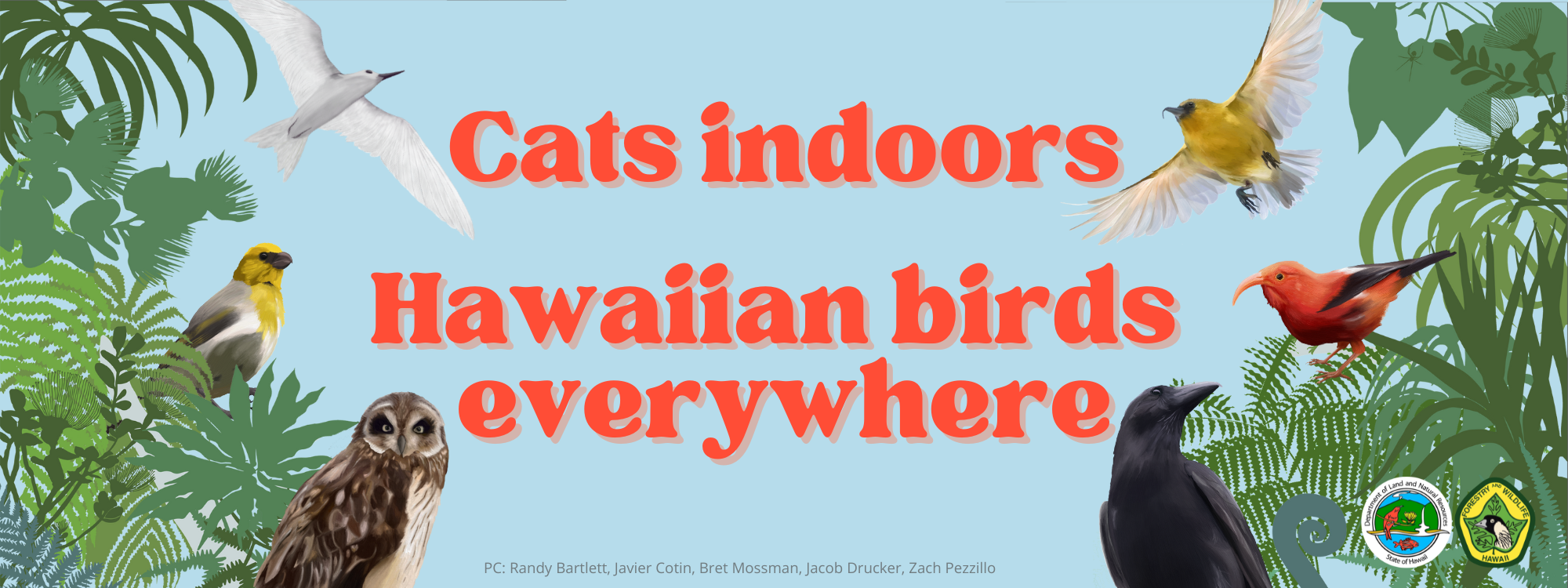 Our “Cats indoors, Hawaiian birds everywhere” bumper sticker, 8″x3″, vinyl
Our “Cats indoors, Hawaiian birds everywhere” bumper sticker, 8″x3″, vinyl
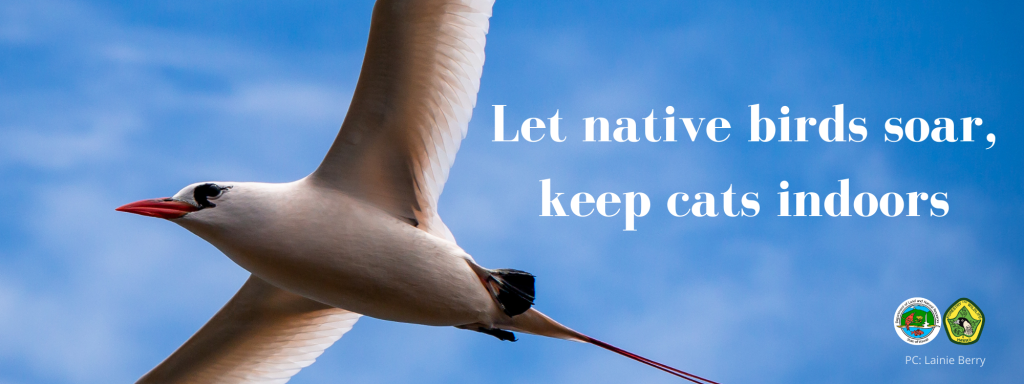
Our “Let native birds soar” bumper sticker, 8″x3″, vinyl
